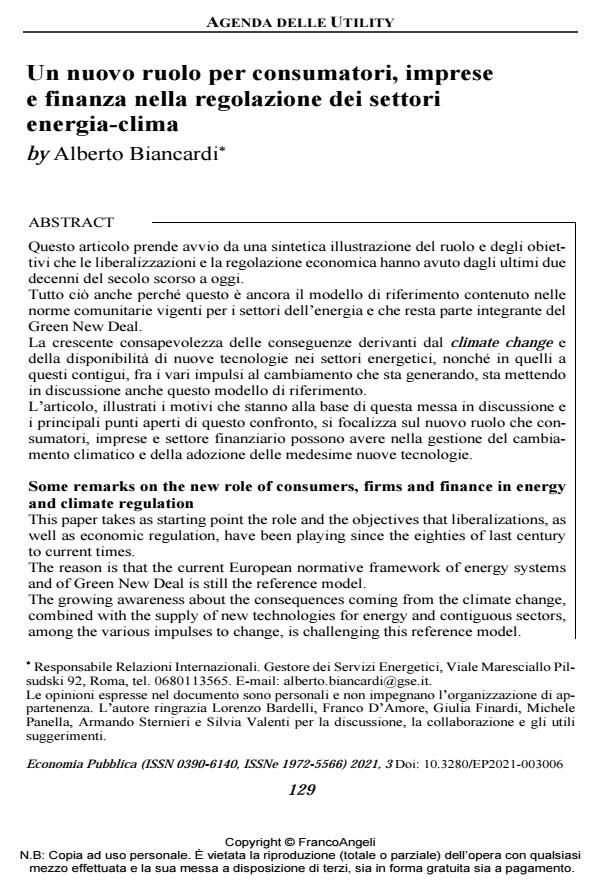Some remarks on the new role of consumers, firms and finance in energy and climate regulation
Journal title ECONOMIA PUBBLICA
Author/s Alberto Biancardi
Publishing Year 2021 Issue 2021/3
Language Italian Pages 30 P. 129-158 File size 351 KB
DOI 10.3280/EP2021-003006
DOI is like a bar code for intellectual property: to have more infomation
click here
Below, you can see the article first page
If you want to buy this article in PDF format, you can do it, following the instructions to buy download credits

FrancoAngeli is member of Publishers International Linking Association, Inc (PILA), a not-for-profit association which run the CrossRef service enabling links to and from online scholarly content.
This paper takes as starting point the role and the objectives that liberalizations, as well as economic regulation, have been playing since the eighties of last centu-ry to current times. The reason is that the current European normative framework of energy systems and of Green New Deal is still the reference model. The growing awareness about the consequences coming from the climate change, combined with the supply of new technologies for energy and contigu-ous sectors, among the various impulses to change, is challenging this reference model. Once outlined the reasons of this challenge and the main open issues of this de-bate, the paper aims to focus on the new role that consumers, firms and finance could have for fostering the actions against climate change as well as for the adoption of these new technologies.
Keywords: economic regulation, energy, environment, impact
Jel codes: A12, A13, B4, I51, Q4
Alberto Biancardi, Un nuovo ruolo per consumatori, imprese e finanza nella regolazione dei settori energia-clima in "ECONOMIA PUBBLICA " 3/2021, pp 129-158, DOI: 10.3280/EP2021-003006